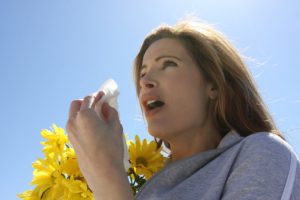High blood pressure (or hypertension) is a common, yet potentially very serious health condition that can lead to heart disease or stroke. To combat hypertension, doctors usually recommend that their patients follow a healthy, low salt diet and exercise regularly, but is there another simple thing that we all can do to lower our blood pressure?
Recent studies have indicated that spending more time outdoors in the sun can lower your lower pressure. What was found is that nitric oxide stored in the top layers of the skin reacts to sunlight and cause blood vessels to widen as the oxide moves into the bloodstream. That, in turn, lowers blood pressure. The research, which was conducted by British researchers at the University of Southampton, exposed individuals with blood pressure within normal range to ultra violet light. After exposure, those in the study saw a modest decrease in blood pressure levels. Researchers believe that the drop will be even more significant in individuals with elevated blood pressure.
Additional studies have concluded that people with higher levels of Vitamin D ( a vitamin that is commonly linked to sun exposure), experienced lower blood pressure levels and were at lower risk of developing hypertension. In fact, according to one recent study, for every 10 percent increase in vitamin D levels, there was an 8 percent decrease in the risk of developing hypertension.
Lastly, blood pressure levels tend to fluctuate seasonally, with levels typically being at their highest during the winter months. There are many potential factors for this, including changing weather patterns and increased weight gain during the winter, but could more sun exposure be a factor in lower blood pressure during summer months?
This information does not mean that those looking to lower their blood pressure should rely on sun exposure as their only form of treatment against hypertension, nor should individuals ignore the potential dangers of prolonged, unprotected exposure to the. This research merely suggests that, if done responsibly, exposure to the sun can have a positive effect on your blood pressure levels.
If you have hypertension, speak with your physician about how increased sun exposure may benefit your condition. If you do not have a doctor, please call 718-670-5486.
All content of this newsletter is intended for general information purposes only and is not intended or implied to be a substitute for professional medical advice, diagnosis or treatment. Please consult a medical professional before adopting any of the suggestions on this page. You must never disregard professional medical advice or delay seeking medical treatment based upon any content of this newsletter. PROMPTLY CONSULT YOUR PHYSICIAN OR CALL 911 IF YOU BELIEVE YOU HAVE A MEDICAL EMERGENCY.


